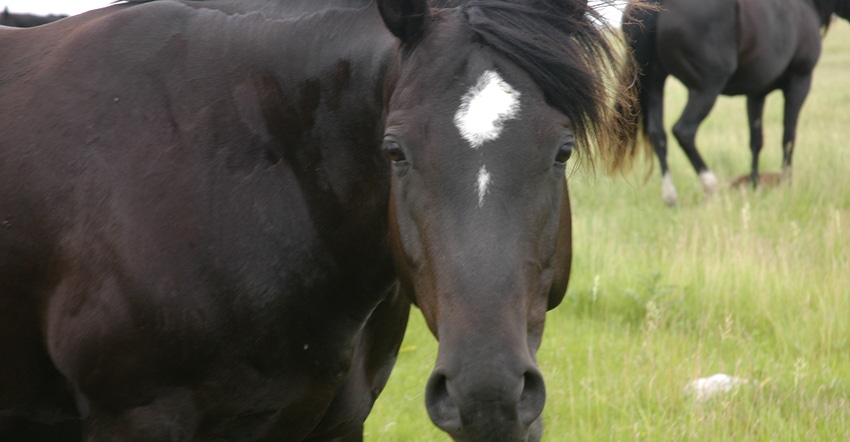April 10, 2019

North Dakota’s state veterinarian says equine herpesvirus myeloencephalopathy (EHM) has been confirmed recently in horses in several states including Idaho, Arizona, Nevada, California and Iowa.
She advises owners of horses that have traveled in those areas recently to keep their horses in isolation for two weeks and monitor for clinical signs of EHM, which include: fever, nasal discharge, depression, incoordination, hind limb weakness, loss of tail tone, loss of bladder tone, dog sitting position and inability to rise.
Those planning to travel with their horses out of state or to events in North Dakota where out-of-state horses may participate should visit with their veterinarian regarding booster vaccinations and potential exposures to EHM.
“With summer coming, many horses will be moving to events around the region,” says state veterinarian Susan Keller. “Care should be taken to avoid co-mingling horses to minimize the chances of contracting the disease.”
EHM can be spread through the air, contaminated equipment, clothing and hands. Biosecurity measures that can reduce the risk of spreading the disease include avoiding shared food or water containers and preventing nose-to-nose contact.
Any horses entering North Dakota for any length of time must be accompanied by a certificate of veterinary inspection and a negative equine infectious anemia test.
“Certificates of veterinary inspection reduce the risk of introduction of clinical disease and help us better monitor the movement of equines into North Dakota,” Keller says. “We use that information to report disease risks and findings to veterinarians and horse owners in North Dakota.”
Although highly infectious and contagious among horses, EHM poses no threat to human health.
Source: North Dakota Department of Agriculture. which is solely responsible for the information provided and is wholly owned by the source. Informa Business Media and all its subsidiaries are not responsible for any of the content contained in this information asset.
You May Also Like




